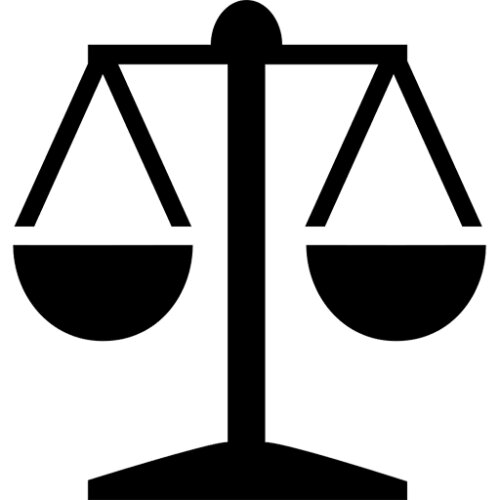Best Employment Rights Lawyers in Nice
Share your needs with us, get contacted by law firms.
Free. Takes 2 min.
List of the best lawyers in Nice, France
About Employment Rights Law in Nice, France
Employment rights law in Nice, France is governed by a combination of French labor laws and European Union regulations. French employment law is designed to protect workers and ensure fair working conditions across all industries. This includes regulations on working hours, minimum wage, dismissal procedures, workplace safety, and equal treatment. Nice, as part of France, adheres strictly to these laws, and any violations can result in substantial penalties for employers. Understanding these rights is crucial for both employees and employers to foster a fair and lawful working environment.
Why You May Need a Lawyer
There are several common situations where individuals might require legal assistance in the realm of employment rights. These include but are not limited to:
- Unfair Dismissal: If you believe you have been terminated from your job without just cause or due process, a lawyer can help you challenge your dismissal.
- Discrimination and Harassment: Experiencing unfair treatment or harassment based on race, gender, religion, or other protected characteristics is illegal, and a lawyer can guide you through filing a claim.
- Contract Disputes: Whether it's a disagreement over terms in your employment contract or issues with non-compete clauses, a lawyer can provide the necessary support and interpretation.
- Wage and Hour Disputes: If your employer is not paying you the agreed-upon wage or you are being asked to work beyond legal limits without compensation, legal advice can help resolve these disputes.
- Workplace Safety: If you're injured at work or face unsafe working conditions, a lawyer can ensure that your rights are protected and you receive appropriate compensation.
Local Laws Overview
The following are key aspects of local employment laws relevant to Nice, France:
- Working Hours: The standard workweek in France is 35 hours. Any work beyond this is generally considered overtime and must be compensated accordingly.
- Minimum Wage: France has a national minimum wage, known as the SMIC (Salaire Minimum Interprofessionnel de Croissance), which is adjusted annually.
- Employment Contracts: French law requires that most employees have a written employment contract, which outlines the terms of employment and workplace conditions.
- Termination of Employment: There are strict rules governing the termination of employment, including notice periods and severance pay. Employers need a valid reason for dismissing an employee.
- Annual Leave: Employees are entitled to a minimum of five weeks of paid annual leave each year.
- Non-Discrimination: French law prohibits discrimination based on various personal characteristics, ensuring equal treatment in the workplace.
- Health and Safety: Employers are required to provide a safe working environment and adhere to occupational health and safety regulations.
Frequently Asked Questions
1. What is the standard workweek in France?
The standard workweek in France is 35 hours. Overtime must be compensated accordingly.
2. What is the current minimum wage in France?
As of 2023, the SMIC is €11.27 per hour before taxes. This amount is updated annually.
3. How much notice is required for termination?
The notice period varies depending on the length of service but typically ranges from one to three months.
4. Are employment contracts mandatory?
Yes, most employees in France must have a written employment contract outlining their terms of employment.
5. What types of discrimination are prohibited by law?
Discrimination based on race, sex, religion, age, disability, sexual orientation, and other personal characteristics is prohibited.
6. How many paid vacation days am I entitled to?
Employees in France are entitled to a minimum of five weeks of paid annual leave.
7. What should I do if I'm experiencing workplace harassment?
You should document the harassment and seek legal advice to understand your options for filing a complaint.
8. Can my employer change my contract terms without my consent?
No, significant changes to your employment contract require mutual agreement between you and your employer.
9. What are my rights if I get injured at work?
If you're injured at work, you're entitled to compensation and should report the injury to your employer immediately.
10. What can I do if I believe I was wrongfully terminated?
Consult with a lawyer who specializes in employment law to assess your case and guide you through the process of challenging your dismissal.
Additional Resources
The following resources can be valuable for those seeking more information or assistance:
- Ministry of Labour (Ministère du Travail): Provides information on labor laws, regulations, and rights.
- Local Labour Inspectorate (Inspection du Travail): Offers assistance and can investigate complaints regarding employment rights violations.
- Trade Unions: Many trade unions offer support and advice to workers regarding their employment rights.
- Legal Aid Services (Aide Juridique): Can provide free or low-cost legal advice to those who qualify.
Next Steps
If you need legal assistance with employment rights in Nice, France, consider the following steps:
- Document Everything: Keep detailed records of all relevant information, including contracts, communications, and incidents.
- Seek Initial Advice: Contact a local labor inspectorate or a trade union for initial guidance.
- Consult a Lawyer: Reach out to a lawyer specializing in employment law to discuss your case and understand your legal options.
- Know Your Deadlines: Be aware of any time limits for filing complaints or lawsuits and act promptly to ensure your rights are protected.
- Consider Mediation: In some cases, mediation might be a viable option to resolve disputes without going to court.
Taking these steps can help ensure that your employment rights are protected and that you receive the proper legal support you need.
Lawzana helps you find the best lawyers and law firms in Nice through a curated and pre-screened list of qualified legal professionals. Our platform offers rankings and detailed profiles of attorneys and law firms, allowing you to compare based on practice areas, including Employment Rights, experience, and client feedback.
Each profile includes a description of the firm's areas of practice, client reviews, team members and partners, year of establishment, spoken languages, office locations, contact information, social media presence, and any published articles or resources. Most firms on our platform speak English and are experienced in both local and international legal matters.
Get a quote from top-rated law firms in Nice, France — quickly, securely, and without unnecessary hassle.
Disclaimer:
The information provided on this page is for general informational purposes only and does not constitute legal advice. While we strive to ensure the accuracy and relevance of the content, legal information may change over time, and interpretations of the law can vary. You should always consult with a qualified legal professional for advice specific to your situation.
We disclaim all liability for actions taken or not taken based on the content of this page. If you believe any information is incorrect or outdated, please contact us, and we will review and update it where appropriate.










